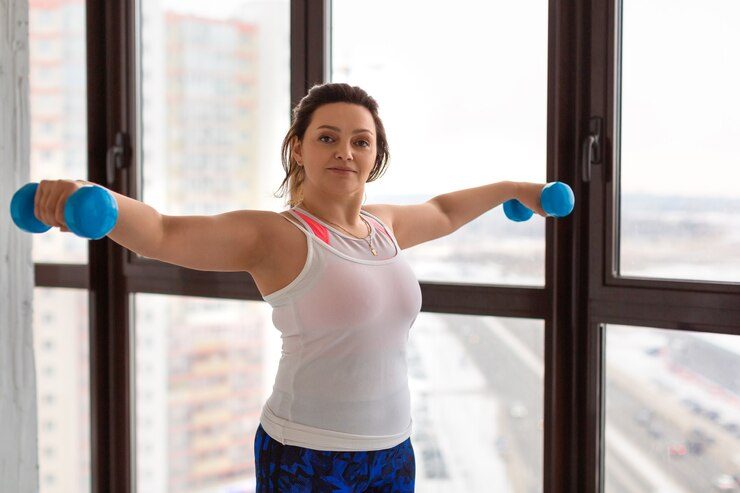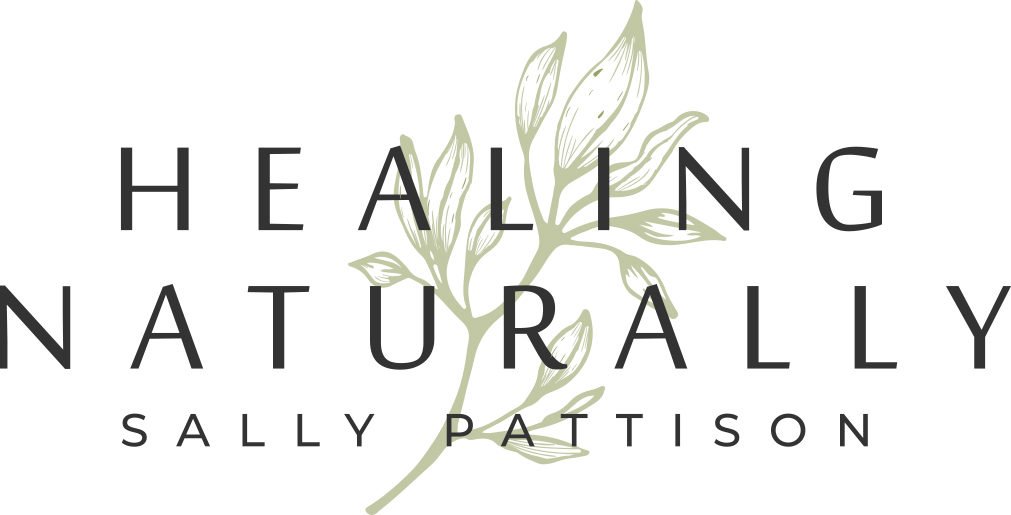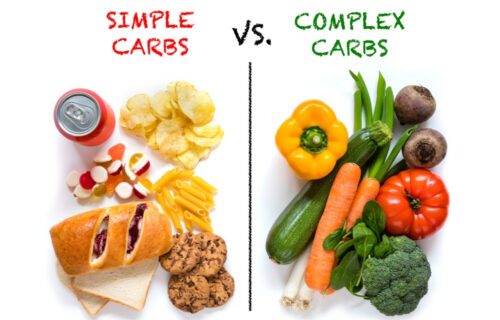
Middle Age Spread
Why Weight Loss Routines Stop Working in Your 40s + 50s +
AND 8 Tips That’ll Help
It sneaks up on you. You feel like your normal self and then, one day, you notice that your body shape has changed or that you’re holding on to a few extra kilos. Your body just doesn’t feel the same.
It’s not all in your head. As you get older, there are real changes in your body — some due to age, some due to menopause — that can lead to weight gain.
But most women aren’t aware of them.
So, here’s what’s really going on with your body after 40 and what you can do to feel healthy and strong as you age.
1. Your hormones are starting to bubble out of whack
The biggest culprit behind your body’s changes after 40? Hormones. These are the chemical messengers that control most body functions, from reproduction to hunger.
As you approach menopause, levels of estrogen, progesterone, and testosterone fluctuate.
This fluctuation in hormones causes a cascade of changes, from decreased bone density and lean muscle mass to lower sex drive and mood changes.
Tip: Don’t feel resigned to grinning and bearing the hormonal fluctuations! Talk to friends or family members, or find a supportive group. You’ll probably hear that you’re all going through something similar.
2. Your metabolism is taking a natural downturn
Yes, you can blame your hormones for this, too. Not only does your resting metabolic rate naturally slow with age, lower estrogen levels contribute to a sluggish metabolism.
You also start to accumulate more fat, especially around your waistline.
Researchers have found that hormonal changes caused by perimenopause and menopause contribute to changes in body composition, fat accumulation, and fat distribution.
Tip: The best way to keep your metabolism humming? Stay active.
A combination of strength training and cardiovascular exercise — something with a little impact, like cardio dance or a boxing class.
Plus, eat your fibre. While the average Australian eats 10 grams of fibre a day, you need between 25 and 35 grams. Just make sure you drink plenty of water!
3. This is the age you start losing lean muscle
After the age of 40, you lose muscle mass — the main calorie-burning engine in your body — to the tune of 1 percent a year. It’s linked to dropping estrogen and testosterone levels that accompanies perimenopause and menopause.
Coupled with a slower metabolism, you don’t burn calories the same way as you did when you were young.
Tip: Strength train or lift weights two to four times a week.
Not only will resistance training rebuild lean muscle mass, which also helps burn fat and rev your metabolism, it helps keep your bones and body strong and healthy.
Muscle is a necessary requirement to help support your bone structure, supporting your joints and ensuring you have adequate range of motion.
4. Your body starts becoming insulin resistant
As you get older, and especially as you gain weight, the body starts to ignore insulin — the hormone responsible for regulating blood sugar levels.
As a result, you blood sugar is higher, because your cells aren’t absorbing it, says Burton. The result: It feels like you’re hungry, and you may experience more cravings.
Not only can this lead to unwanted kilo’s, it also puts you at greater risk for type 2 diabetes.
Tip: To avoid a glucose overload, I recommends including a mix of carbohydrates, protein, and fat at every meal and don’t forget the fibre.
Don’t eliminate all carbs or load up on them, it is a matter of type, portions and timing of carbs. Protein and healthy fat help the body feel more satisfied for a longer period of time, and you don’t crave those super starchy carbs that can give you a sugar crash if you get the balance right.
Paying attention to where your carbs come from for example – If you drink juice, it increases blood sugar circulating in the body quickly; If you eat whole grains, it has more fibre and breaks down slowly, ie it gradually releases sugar into the bloodstream.
Sticking to a Mediterranean-style diet in your 40s has been shown to be protective against cancer and heart disease, and it doesn’t cause huge swings in blood glucose levels.
5. Your appetite cues are confused
Hormones like ghrelin (which tells you when you’re hungry) and leptin (which tells you when you’re full) also fluctuate.
As we age, the receptors for these hormones don’t work as well as they used to, and we become resistant to them, too. It’s not just in your head. You’re actually hungry because of your hormones.
Tip: Keeping a food diary to pinpoint pitfalls in your eating habits and to get a better handle on your hunger cues can help. When you actually write down what you eat, you can see if you’re actually snacking all day or if you’re eating bigger portions.
Between your career, family, and friends in your 40s, exercise can fall further down the priority list. Plus, creaky, achy joints are another reason many women become less active.
Overuse and joint injuries resulting from all the years of exercise may cause you to give up your favourite activity or force you to slow down. This can contribute to feeling out of shape.
Tip: Just keep moving. You don’t have to spend hours at the gym or running — find something you love. You’re more likely to stick with it.
Staying active won’t only enhance your metabolism. The endorphins released during exercise will also boost your mood and help you feel better in your own skin.
Plus, regular exercise reduces your risk for chronic health conditions, like cardiovascular disease and diabetes.
7. You could be stressed or feeling the (blood) pressure
Women experience a wide variety of stress in middle age, from managing their career and finances while oftentimes caring for both their children and parents.
When you’re stressed, your body secretes cortisol, aka the fight-or-flight hormone. Constant cortisol secretion can cause blood sugar levels to drop, which makes you want to eat more, especially sugar.
You develop fat around the belly, a larger waistline is linked to conditions like diabetes and heart disease.
Tip: Get a handle on your stress. Whether that’s yoga, meditation, colouring, or reading, find strategies that work for you.
Many women report difficulty sleeping as they get older. Or, maybe you just don’t feel rested, even after a full night’s sleep, which means you have less energy to exercise or be active.
Two of the biggest sleep disruptors at this age are hot flashes and night sweats. You can thank your shifting hormones for that, too.
Tip: First things first: Establish a soothing bedtime routine. In particular, reduce your use of electronics before going to sleep.
Harvard researchers found that the blue light emitted from these devices can disrupt your body’s natural circadian rhythm and suppress melatonin. This is the hormone that makes you sleepy at night.
If hot flashes and night sweats keep you up at night, try a cool shower before bed and breathable pajamas.
Also avoid caffeine and alcohol, especially red wine, which are known triggers for hot flushes, she says.
The best starting point for getting back in tune with your body as you enter your 40s is to keep a heart-healthy diet and exercise.
If you’ve already got this foundation down but don’t feel your body is responding, try varying up your workout routine to awaken new muscles or eating a new diet to give your gut a jolt.
Sometimes tackling changes isn’t about doubling down with the same routine, but finding a new one that works for you.
Need more support and tips?



